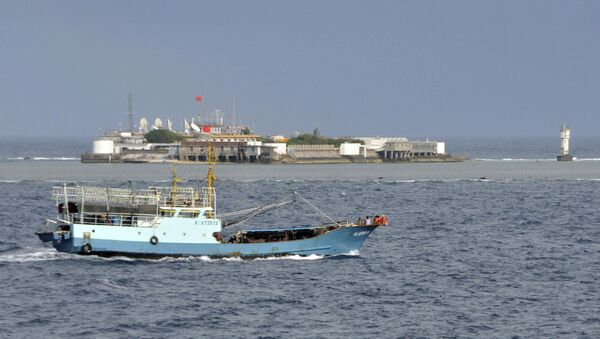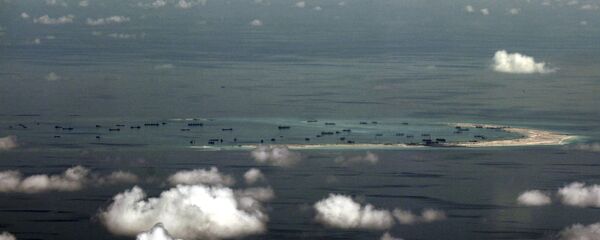WASHINGTON (Sputnik) — Dal Santo noted the reported Chinese move looked likely to prove a reminder of how quickly and effectively Beijing has succeeded in making good on its claim over the whole of the South China Sea.
"The decision to deploy the missiles is a clear statement of Chinese sovereignty over Woody Island," University of Copenhagen Professor Matthew dal Santo stated. "If its aim was to slow down or deter the extension of Chinese power, then the US 'pivot' has proved completely inadequate."
Beijing was well within its rights to deploying such missiles to Yongxing, which has been inhabited by Chinese nationals since 1974, but the move could still prove counterproductive, Eurasian Business Coalition Vice President Ralph Winnie cautioned.
"I don’t think they are in violation of international law, but you have got to look at the longer implications," Winnie said. "It makes other countries jittery and may be more likely to align themselves with the United States."
Other countries throughout the region such as the Philippines, Vietnam, Thailand, Indonesia, Malaysia and Japan were all watching closely, he observed.
"The moves reflect strong nationalist sentiments in China. It is not a good public relations strategy on their part. I don’t think they have a nefarious purpose, but it creates a negative perception," Winnie advised.
China’s standing in the region could be harmed rather than advanced by such unilateral steps, he maintained.
"Certainly, China has a major role to play in the Asia-Pacific Rim as a major stakeholder. But the perception of unpredictable and forceful behavior in the South China Sea will hurt them," Winnie predicted.
The Beijing government wanted stronger relations with their neighbors and n knew they needed to keep and expand their trading partners, he recalled.
"They are a major great power and they have the right to exert themselves in the region. But it has the potential to backfire. The heart of the matter is that such behavior makes people very nervous and very uncomfortable. It doesn’t help China in its long term goal of establishing itself in Asia."
The Chinese were also motivated to assert their rights in the South China Sea region, which had repeatedly been dominated by hostile powers that had intervened in mainland affairs with catastrophic consequences, Winnie said.
"They don’t want to be perceived as the weak power. In history the Europeans and the Japanese took great advantage of them."
In 1840, a British naval campaign to force the unlimited flow of opium into the country led to a civil war that killed 30 million people, and in 1937 a Japanese invasion in the same region started an eight-year- war in which 16 million Chinese perished.
Matthew Dal Santo is a historian and Danish Research Council post-doctoral fellow at the Saxo Institute, University of Copenhagen, where he is leading a project on history and identity in modern Russia. Dal Santo previously worked for the Australian Department of Foreign Affairs and Trade, and is a former Fellow of Trinity College, Cambridge.
Ralph Winnie, Jr. is director of the China Program at the Eurasian Business Coalition in Washington, DC and is an American lawyer with extensive experience and expertise dealing with the US Congress and federal agencies as well as foreign governments.





